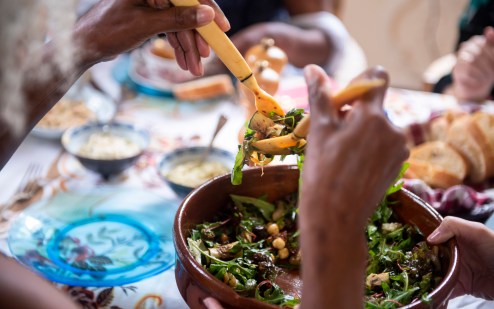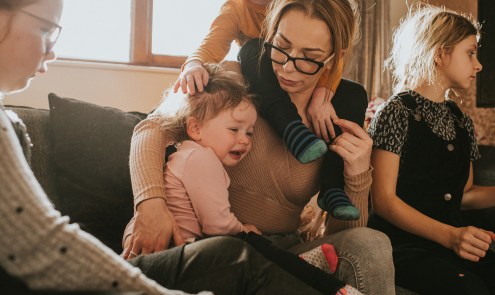Help your children to be happy
Psychologies' family expert, Dr Ilona Boniwell, introduces further scientifically proven methods to increase your children’s happiness

Happiness skills are the very skills our children need to confront the complexity and uncertainty of their future lives. In another post, we talked about the habits of exercise, good sleep, smiling, relating and appreciation. Let’s continue to explore this topic with another five essential competences to learn and embed into everyday living.
Mindfulness. This simply means being fully aware of the world around you and what you are feeling. You can easily teach mindfulness skills to your children and the easiest way is by reintroducing walking into your life. Go for a walk with them. While you’re out walking, stop to catch sight of a flower and encourage them to consciously pay attention to all their senses. It’s a simple, easy practice to do daily or weekly with the kids.
Learning. Gaining knowledge and skills brings freshness to life, satisfies basic psychological needs and creates healthy challenges. We take the fact that our kids are learning for granted, because they spend most of their time in school. Yet, unless they’re interested and invested in what they’re learning, the psychological benefits are unlikely to follow. What have they enjoyed learning recently? It could be a skill, such as playing an instrument, a new book, something interesting from a TV programme or insights gained from a discussion. Can you join forces with them on a learning quest? Try learning something new or introduce them to one of your interests. Set a challenge you would enjoy achieving together. Learning new things together will bring you closer, while communicating that it can be done any time, anywhere, at any age, and not always in school.
Use your strengths. Knowing and using one’s strengths is considered to be one of the most direct routes to personal and professional fulfilment. Putting your strengths to work on a daily basis has a lasting effect on increased happiness and decreased depressive symptoms for up to six months. Bring the strengths language into your home life. Take a free VIA character survey online together, with the choice between the adult and the youth versions. Play strengths card games together. Create a family strengths tree, using painting or collage, including grandparents, too. Notice the strengths in everyday moments.
Change perspective. Are you a glass half-full or a glass half-empty person? If you focus on the half empty, practise asking, ‘What is good about it?’ or ‘What can we learn from it?’ every time something ‘bad’ happens. Being exposed to this kind of constructive thinking can teach your kids the skills of reframing that are the cornerstone of resilience and will buffer them against depression later in life.
Give. Generosity can be taught and learnt, and practice is far better than theory. Plan a surprise with your kids and then do something selfless or nice for a family friend or even a stranger. Volunteer your time together. Studies in neuroscience have shown that co-operative behaviour activates reward areas of the brain, suggesting we’re hard-wired to enjoy helping one another. It’s a win-win scenario – by helping others you feel better yourself. A great thing for your kids to learn.
MORE INSPIRATION
Read: Positive Psychology in a Nutshell by Ilona Boniwell (The Open University Press, £12.99)
Measure your strengths using VIA surveys at viacharacter.org or strengths cards from positran.co.uk
Learn: more about positive parenting by taking an MSc in Applied Positive Psychology at the Anglia Ruskin University
Photograph: Istock








